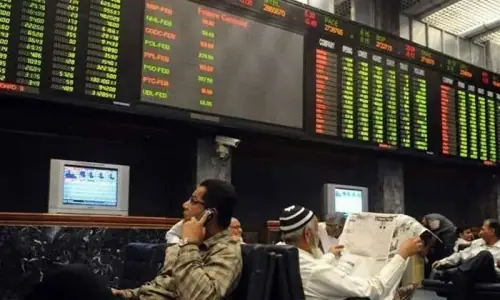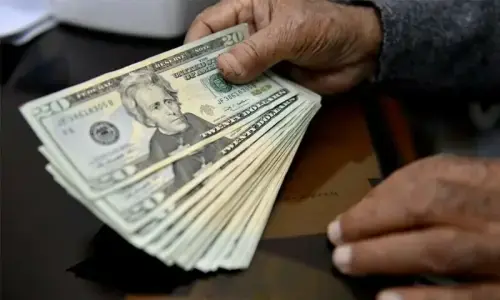BUENOS AIRES: Argentina may have defaulted on its debt for the second time in 12 years on Thursday, but the packed elegant cafes in Buenos Aires show little sign of distress, and shoppers rather than protestors fill the streets.
Jose Bini, a 27-year-old Argentine entrepreneur, shrugged off the news of the default with resigned laughter, saying he was used to economic crises. At least this was not as bad as the 2001/02 crash in Latin America’s No. 3 economy, he said.
“We are used to living like riding a roller coaster,” said Bini, who will not change his plans to expand his microbrewery because of the default. “I have lived through two defaults, hyperinflation, an economic crash, stagflation and I’m only 27.”
Argentina, which is already mired in recession, failed on Wednesday to strike a deal with “holdout” hedge funds suing the nation for full payment of their defaulted bonds in time for a midnight deadline.
But unlike during the last default when the state went bankrupt, triggering bloody protests and plunging millions into poverty, this time around Argentina is solvent.
It simply cannot get coupon payments to bondholders due to a U.S. court ruling, meaning it is in “technical default.”
News of the default prompted Argentine stocks and bonds to reverse recent gains on Thursday but did not cause a rout. The peso fell 2.52 per cent to 12.570 per dollar and currency traders on the streets of Buenos Aires said there had been no rush to buy safe-haven dollars.
The streets of Buenos Aires were calm on Thursday and many said they did not understand how the default might affect them.
“It creates a lot of uncertainty but I don’t know how it will impact me,” said Silvina Ferreyra, 33, a saleswoman for an airline, who said she followed the news but did not understand it all.
 |
“I have a secure job, but I don’t know what will happen. It’s difficult to invest in your life, for example buy a house, with so much uncertainty. But what can you do? Life goes on.”
The increased uncertainty will weigh on already weak consumption, said 55-year-old shopkeeper Liliana Suaya. Sales already fell 40pc this year due to inflation that economists forecast will reach 30pc to 40pc by the end of the year.
Published in Dawn, August 2nd , 2014

































